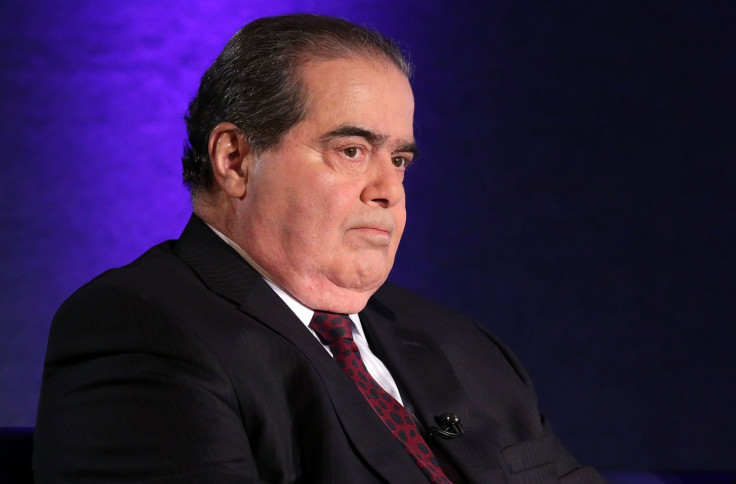Justice Antonin Scalia Had Multiple Health Issues, Including Heart Problems And High Blood Pressure, Texas Judge Says: Report

Justice Antonin Scalia had a history of health problems including heart trouble and high blood pressure, Texas county Judge Cinderela Guevara — who decided no autopsy was required following the death of the Supreme Court justice — told the Associated Press. The details are in contrast with recollections of friends who described Scalia as his usual, happy self in his final days, the AP reported Monday.
Presidio County Judge Guevara told AP she spoke with local and federal investigators, as well as Scalia's doctor, on the day the Supreme Court judge was found dead in his room at a Texas ranch. She told the news agency the 79-year-old judge was considered too weak to undergo surgery for a recent shoulder injury.
Guevara spoke with Rear Adm. Brian P. Monahan — an attending physician for the U.S. Congress and Supreme Court members — who told her Scalia visited the doctor's office on both Wednesday and Thursday before heading to Texas, and had an MRI scan of his shoulder, the AP reported. Monahan also told Guevara that Scalia was too weak to undergo the surgery that was required, and that he recommended rehabilitation. Scalia had reportedly told some people at the ranch he was feeling unwell.
The ranch owner reportedly said Scalia appeared to be normal at dinner the night before he was found "in complete repose" in his room. John Poindexter said Scalia arrived Friday and was part of a group of about 35 weekend guests. Scalia retired around 9 p.m., saying he wanted a long night's sleep, Poindexter said, according to the AP.
Bryan Garner, a close friend of Scalia and co-author of two books with him, reportedly said that the justice seemed happy and cheerful during trips to Hong Kong and Singapore in late January and early February. Garner told AP that Scalia did not mention heart problems or other health issues, except a "head cold," during the trip.
News of the sudden death of the longest-serving justice on the Supreme Court triggered shock waves throughout the political world Saturday. Politicians were quick to issue statements expressing their condolences. His death also set off speculation over who his successor would be, as well as about the politics behind the process of appointing his successor during a presidential election year.
The media speculated about several possible nominees for the post, and many outlets cited a 2013 report to suggest that Sri Srinivasan, a former senior Justice Department official — for whom President Barack Obama had fought to confirm a seat on the U.S. Court of Appeals in the District of Columbia — could be appointed to the post. However, the White House said Sunday that Obama will not nominate Scalia’s successor in a hurry.
© Copyright IBTimes 2025. All rights reserved.






















